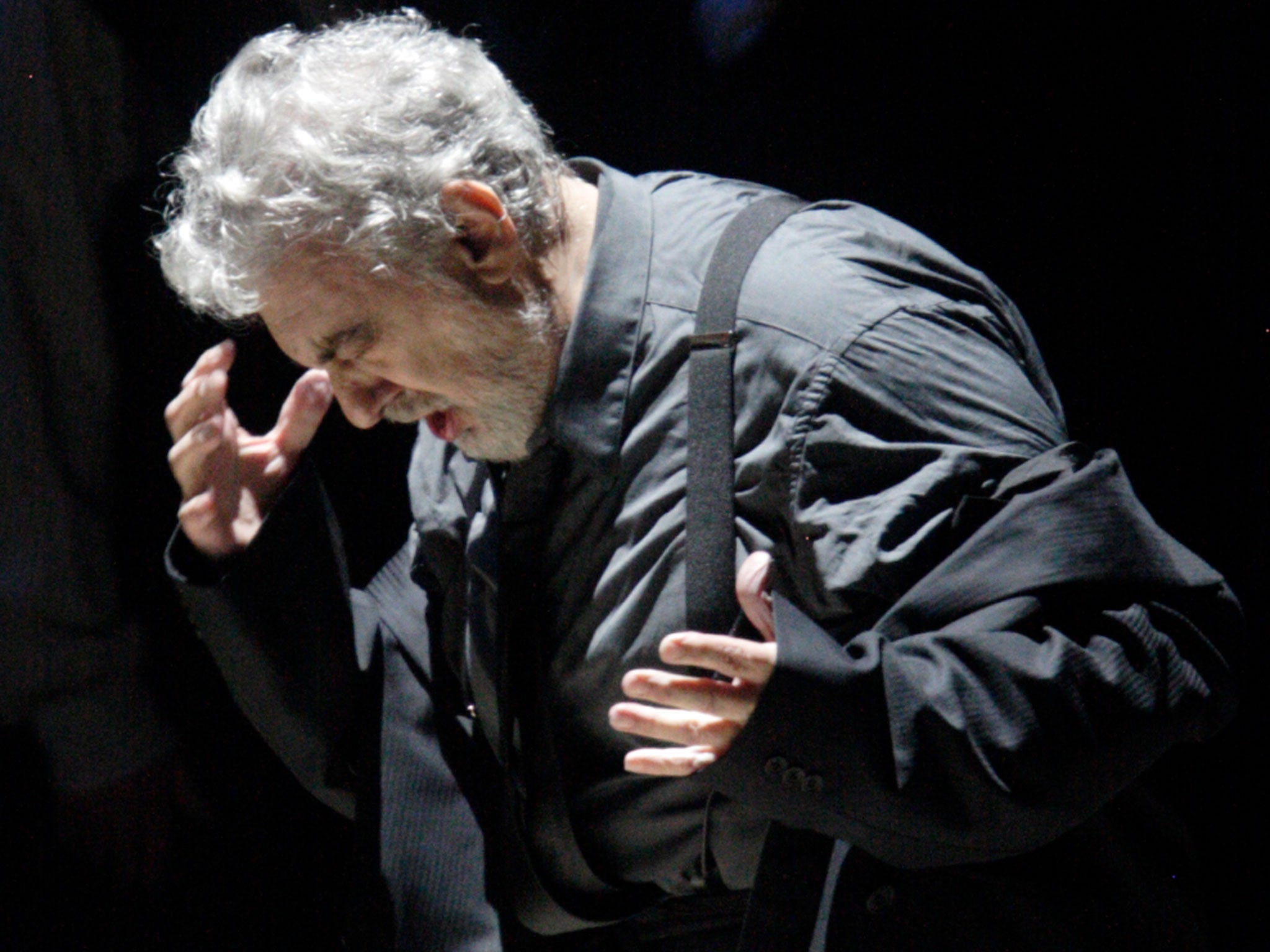Theatre and opera needs to get with the programme
Plus: An interesting insight into industrial relations from Eddie Braben's obituary and is Harry Hill in bed with the devil he's lampooning?


Your support helps us to tell the story
From reproductive rights to climate change to Big Tech, The Independent is on the ground when the story is developing. Whether it's investigating the financials of Elon Musk's pro-Trump PAC or producing our latest documentary, 'The A Word', which shines a light on the American women fighting for reproductive rights, we know how important it is to parse out the facts from the messaging.
At such a critical moment in US history, we need reporters on the ground. Your donation allows us to keep sending journalists to speak to both sides of the story.
The Independent is trusted by Americans across the entire political spectrum. And unlike many other quality news outlets, we choose not to lock Americans out of our reporting and analysis with paywalls. We believe quality journalism should be available to everyone, paid for by those who can afford it.
Your support makes all the difference.The programme for the recent and excellent Royal Opera production of Verdi's Nabucco must have left a few people at Covent Garden with red faces. An essay on exile, one of the themes of the opera, looked at oligarchs living away from home and ventured that not all lived the wealthy, pampered life of Boris Berezovsky in Britain. By the time opera-goers were reading these words, Berezovsky had been found hanged.
Programmes. They rarely contain gaffes quite as bad as that. But they are too rarely spoken or written about. They are the introduction for the audience of a work they are about to see. Yet, most of the time, they are frustratingly inadequate. It's not just the huge number of adverts. I can live with that. It's the paucity of information about the performers one has come to see.
From the opera world comes another recent example in another excellent production. The English National Opera's La Traviata contained a wonderful central performance from the soprano Corinne Winters. Heaven forbid that the programme notes should tell us anything of interest like her background or even nationality. No, it was the usual programme guff, a list, a whole list and nothing but a list, of performances she had given and was to give. One could learn, sitting in London's St Martin's Lane, that she would soon give a recital in Kentucky. Who in that audience could care less? We have paid for information about these great performers, not for a list that ensures a smile on some agent's face.
But if opera is bad, with its list of performances, theatre is worse. Here we get a list all right, but not even of the performances, just of the productions an actor has appeared in. Do the compilers of these programmes not realise that it simply isn't enough to write under past appearances "Macbeth"? Did he play Macbeth, or did he play an unnamed soldier? There's a difference. But the programmes continue to give a list of plays under an actor's name, and precious little else. As information, it's next to useless.
I have just seen a truly great production of Othello at the National Theatre. The programme contains some excellent essays, including one by the production's director, Nicholas Hytner. But look up the cast, even in a National Theatre programme, and once again all you get is a list of plays without even a hint of which part the actor had played.
I looked up Rory Kinnear, the memorable Iago in this production. There was the list, the only other line being which drama school he attended. Would it have been so very intrusive to tell the audience that he was the son of the late character actor Roy Kinnear?
Programmes are a part of the audience experience, potentially quite an important part, certainly an expensive part, and those compiling them need to sharpen up their act and give us some genuine information about the people whom we see on the stage.
Strangely, I have an unexpected ally in this complaint. Labour's shadow Culture Secretary Harriet Harman told me that programmes continually frustrated her as she went to see performances in her job. Could they not, she said, tell us where a performer went to school? Yes, such things are interesting. Lists, particularly meaningless lists, are not.
Get out of that! Go on, get out of that!
The obituary of Eddie Braben, Morecambe and Wise's scriptwriter, contained an interesting insight into BBC industrial relations in the 1970s. When Morecambe and Wise defected from the BBC to Thames Television, Simon Farquhar's obituary in this paper told how Braben wanted to go with the two stars, but the head of BBC Light Entertainment Bill Cotton refused to let him depart. Braben met Cotton in a BBC Television Centre office and opened negotiations by head-butting him. Cotton's considered response was to clobber him with a soda syphon. Braben was allowed to leave. So much quicker than a long, drawn-out industrial tribunal.
Is Harry Hill in bed with the devil he's lampooning?
Harry Hill has written the script for a new musical about The X Factor, called I Can't Sing (the title of one of the songs in the show). The comedian describes it as an "all-singing, all-dancing, mickey-taking spectacular". As one of the show's producers is Simon Cowell's own company Syco Entertainment, I do wonder quite how mickey-taking it will be. Go on Harry, take the mick as only you can, show that you have been given a totally free hand, and let's have a few mickey-taking statistics, such as how much Mr Cowell makes from The X Factor and what sort of contracts X Factor winners have to sign. Stats can make for a great all-singing, all-dancing number.
Join our commenting forum
Join thought-provoking conversations, follow other Independent readers and see their replies
0Comments